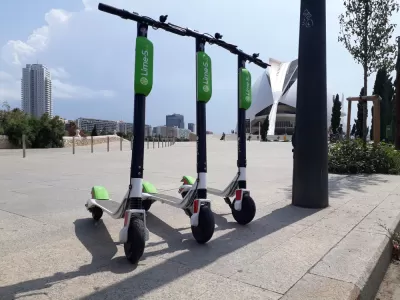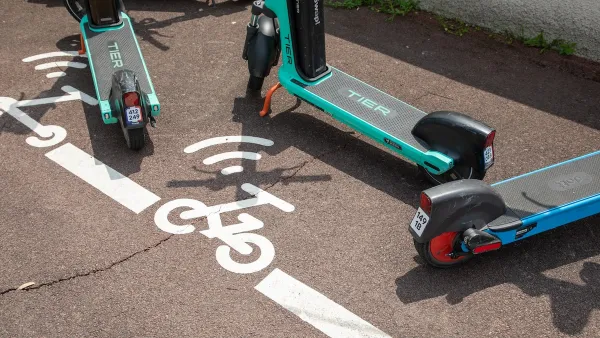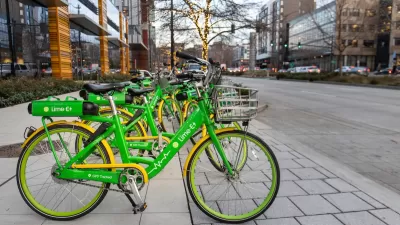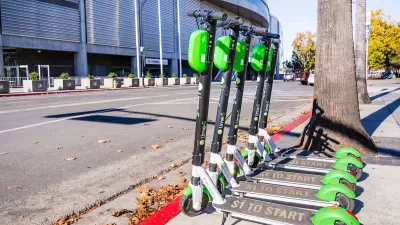Scooters have helped diversify the mobility landscape, but companies need to better address the recycling and reuse process and the environmental impacts of defunct devices.

Katie Pyzyk writes about life-span and end-of-life issues related to dockless scooters and the steps companies such as Lyft, Bird, and Lime are taking to address these concerns.
The life span of e-scooters is fairly short—a Boston Consulting Group report estimates the average life span is just three months, due partly to the fact that the devices are heavily used and endure a great deal of wear and tear. Sustainability concerns aside, the short life span and replacement costs affect the profitability of companies.
"Nearly all the major operators have announced efforts recently to ruggedize their devices and extend the life span. This includes more robust tires, sturdier bodies, improved brakes and longer battery life," notes Pyzyk.
The end-of-life processing of e-scooters—both recycling and reuse—is another issue, particularly the handling of hazardous electric batteries.
In addition to waste and disposal concerns, vandalism of e-scooters has posed sustainability challenges. For example, county sheriffs pulled 50 scooters from the Willamette River in Portland, Oregon, in June. "Divers were concerned the batteries would leak into the river. It’s unclear who put the scooters there or when, but some of them showed signs of rust," says Pyzyk.
FULL STORY: Reduce, reuse, rescoot? A look at e-scooters' long-term sustainability

Planetizen Federal Action Tracker
A weekly monitor of how Trump’s orders and actions are impacting planners and planning in America.

Restaurant Patios Were a Pandemic Win — Why Were They so Hard to Keep?
Social distancing requirements and changes in travel patterns prompted cities to pilot new uses for street and sidewalk space. Then it got complicated.

Map: Where Senate Republicans Want to Sell Your Public Lands
For public land advocates, the Senate Republicans’ proposal to sell millions of acres of public land in the West is “the biggest fight of their careers.”

Maui's Vacation Rental Debate Turns Ugly
Verbal attacks, misinformation campaigns and fistfights plague a high-stakes debate to convert thousands of vacation rentals into long-term housing.

San Francisco Suspends Traffic Calming Amidst Record Deaths
Citing “a challenging fiscal landscape,” the city will cease the program on the heels of 42 traffic deaths, including 24 pedestrians.

California Homeless Arrests, Citations Spike After Ruling
An investigation reveals that anti-homeless actions increased up to 500% after Grants Pass v. Johnson — even in cities claiming no policy change.
Urban Design for Planners 1: Software Tools
This six-course series explores essential urban design concepts using open source software and equips planners with the tools they need to participate fully in the urban design process.
Planning for Universal Design
Learn the tools for implementing Universal Design in planning regulations.
Heyer Gruel & Associates PA
JM Goldson LLC
Custer County Colorado
City of Camden Redevelopment Agency
City of Astoria
Transportation Research & Education Center (TREC) at Portland State University
Camden Redevelopment Agency
City of Claremont
Municipality of Princeton (NJ)





























